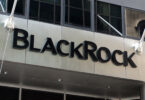During last week’s Q3 earnings presentation, the founder and CEO of Japan’s SBI Holdings, Yoshitaka Kitao, outlined his security token vision. The company has global ambitions for digital assets, some of which have already been disclosed. On more than one occasion, he mentioned linking up the future Osaka Digital Exchange with London.
We reached out to the London Stock Exchange Group (LSEG) to confirm whether there are discussions, but they declined to comment.
The two other international secondary market relationships that SBI has for digital securities are both with regulated stock exchanges. So for London, the LSEG is the most logical partner. Unless SBI was referring to a technology tie-up, in which case there are numerous options. But the context was a secondary market trading venue.
The London Stock Exchange has previously declared a strong interest in digital assets and has at least one blockchain project in the Financial Conduct Authority’s innovation sandbox. That’s a post-trade settlement solution to enable instant settlement of digital equities.
In terms of the big picture, the primary two hurdles for a digital security to list on the LSE are the usual regulatory compliance and the necessary post-trade solution.
SBI’s vision
Coming back to SBI, Kitao outlined a multi-pronged digital assets approach. In Japan, SBI has partnered with SMBC to develop the Osaka Digital Exchange (ODX), which will provide a secondary market for common stock (from 2022) and security tokens (after 2023). Because Japan’s security token offering laws came into force last year, there’s a belief that the country is well-placed to lead in this area. And there is a significant amount of activity in Japan.
However, the vision for the ODX is not a purely domestic one. SBI is keen to challenge Hong Kong for cross-border securities trading. Kitao commented that because digital assets are global, there’s a need for a global venture for secondary markets.
Hence he discussed setting up “corridors” with Singapore, Switzerland, Germany and London. There are previously announced partners for three of those four destinations.
SBI is an investor in Germany’s Boerse Stuttgart Digital Exchange as well as Boerse Stuttgart Digital Ventures. The Boerse Stuttgart is Germany’s second-largest stock exchange. Meanwhile, Switzerland’s stock exchange SIX has its SIX Digital Exchange (SDX). Last December, SDX and SBI announced a digital assets joint venture in Singapore. The odd one out is London, where there’s been no announcement so far.
When talking about the Osaka Digital Exchange itself, Kitao said that four overseas players were interested in investing, but SBI wants to retain a larger stake in the beginning. He mentioned that it gets more complex with foreign players, but SBI is keen to benefit from their insights.
Apart from the secondary market, Kitao also spoke about issuance, where it has partnered with Nomura Group’s BOOSTRY for security token offerings (STOs). SBI had originally planned to go it alone and wanted a 15% stake in BOOSTRY, but Nomura was only willing to give up ten percent.
There is also a need for self-regulation to avoid the problems seen with ICOs. To that end, the Japan Security Token Offering (STO) Association boasts 12 of the largest securities firms and 45 associates as members.
At one point, Kitao stated that the digital assets and security token sector is incomparable to other financial innovations. “That’s how big it is,” he said.






